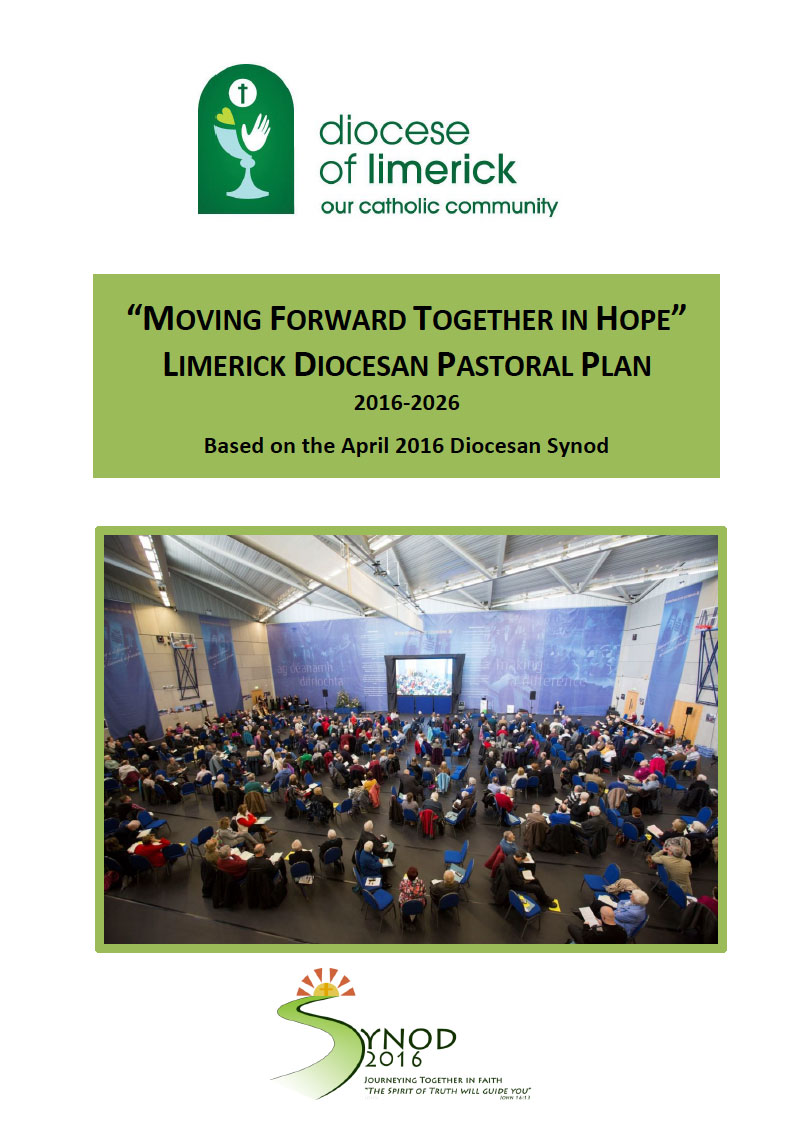Reading the Diocesan Plan
I invite you now to read carefully our Diocesan plan. It is also to be read together with others in our parishes and communities. As I mentioned above, over the past few months a lot of work has gone into reading the results of the Synod. The Synod vote has given us an overall direction for our Diocese and also a clear thrust for each theme that emerged in the Synod, thus providing a Vision to guide us in the years ahead. It has also enabled us to prioritise proposals within each theme and devise a strategy for delivering the broad range of actions identified.
In order that we can realise our Vision the overall strategy proposed in the Diocesan Plan is to develop capacity or ability to deliver at diocesan and local level.
You will see in each theme that the aim is to begin by doing something at diocesan level to increase our ability to move on this theme – this is achieved by training, employing or appointing people to key positions. Then, in turn we aim to similarly develop the ability on the ground to make progress on actions by providing training and resources and ensuring there are people at local level who can deliver actions in this theme.
We have many proposals and many actions named in the plan. The intention is that local communities approach many of these (the ones that are not core or essential) as they would a menu and choose those that are appropriate to their circumstances. Obviously, we can’t do everything all at once. Each local community needs to discern together what elements of the “menu” they want to proceed with in the coming months, next year etc.
Finally, there are two other categories of proposals for which we have employed a different strategy.
- Firstly, there are those proposals brought forward by groups or agencies who are already working in particular areas and who have particular experience and expertise, for example Compassionate Communities, Bedford Row, Children’s’ Grief project. Here the strategy is to work with and support these groups rather than working in parallel.
- Secondly some proposals have been brought forward by delegates themselves who have a passion and experience in the particular area, for example, Inter-faith dialogue, Living with disability, Laudato Sì and care for the Environment, or the John Paul II Awards for young people. Again here the strategy is to go back to those delegates and work with them to act upon their proposals
I hope you enjoy reading through the Diocesan Plan. Can I suggest you say a little prayer to the Holy Spirit to guide you as you read and think about what is proposed here. It’s a plan for all of us and we all have to be able to see how we can bring it about. So, let’s set move forward together in hope: “Our help is in the name of the Lord who made heaven and earth” (Ps 124:8).
+ Brendan Leahy
Bishop of Limerick
